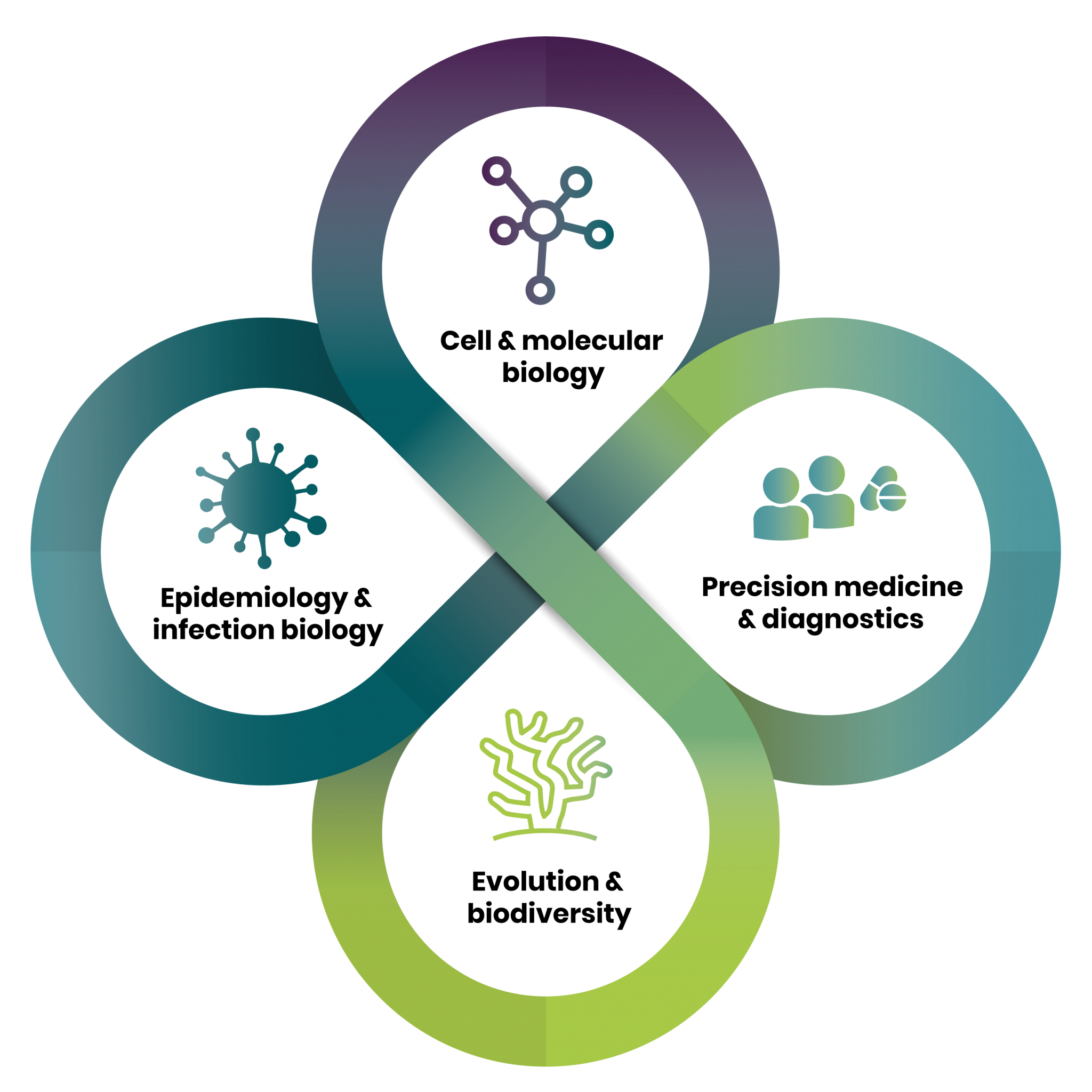Upcoming recruitments in SciLifeLab and Wallenberg program on data-driven life science
The practice of life science is continuously becoming more data-dependent. The amount and complexity of data is growing exponentially, and more scientific discoveries are enabled when data is openly available to researchers across the world. This is the basis for the SciLifeLab and Wallenberg National Program on Data-Driven Life Science (DDLS), which sets out on its mission to recruit and train the next generation of life scientists, later this year. The first round of recruitments, which will focus on young group leaders, the so-called DDLS Fellows, is scheduled to open in June. In February, the first meeting with the participating organizations was held to initiate the planning.
The 12-year 3,1 Billion SEK DDLS program funded by the Knut and Alice Wallenberg Foundation was announced in late 2020. SciLifeLab, as the main host, is working with the eleven participating organizations (ten universities and the Swedish Museum of Natural History, NRM) to establish the core of the program and to coordinate the first round of recruitment, which will focus on DDLS Fellows and open in June.
“We are very excited about getting started with the Fellows recruitments. The DDLS program provides a very attractive deal, and we have high hopes for attracting fantastic young research leaders from all across the world”, says Carolina Wählby, professor at Uppsala University and member of the DDLS steering group.
Over the years, the program aims to recruit 39 future research leaders as DDLS Fellows, establish a graduate school for 260 PhD students in academia and industry and create 210 postdoctoral positions in academia and industry. The researchers will be recruited to the participating organizations, enabling them to utilize the strong local research environments. At the same time, they will be connected to the national DDLS program, which aims to grow a strong community of scientists working with rapidly expanding resources of open data in the life sciences.

The program focuses on data-driven life science research in four strategic research areas: Cell and Molecular Biology, Precision Medicine and Diagnostics, Evolution and Biodiversity and Epidemiology and Infection Biology. Apart from recruitments, the program aims to establish a strong computational and data science base, and enable scientists to better analyse their data and integrate it with the global streams of life science data. The idea is to create a truly national effort and a unique framework for data-driven life science.
Data as a key driver of life science research
Over the last two decades, the ability of life scientists to record genomics, proteomics, single-cell, imaging, and other data has leaped by orders of magnitude. At the same time, the computing power, artificial intelligence, machine learning, and other technologies available to crunch that data, have dramatically improved. Essentially, data is becoming a key driver of life science research.
Further, these mountains of comprehensive, systematic and deep data need to be handled accordingly with FAIR data principles, i.e. the data needs to be Findable, Accessible, Interoperable and Re-usable, in real-time and to scientists everywhere. That way, scientists can mine them for new discoveries and find unexpected patterns and relationships.
“The DDLS program will bring the life science community in Sweden together in a unique manner. It connects ten universities, and NRM, across four fields of life science research, with systematic data-handling and data science expertise, eventually engaging hundreds of scientists and trainees over twelve years”, says professor Olli Kallioniemi, Director of SciLifeLab and the DDLS program.
“Isn’t all research already data-driven, some may wonder? Actually, we have only taken the baby-steps in data-driven research. We need to go beyond discussions, to implementing it and doing this together across the nation. That will be transformative. We want the best global talent to join us in this path, and to link up with international efforts of similar ambitions”, he continues.
Want to know more about the upcoming positions? Sign up to our newsletter!





